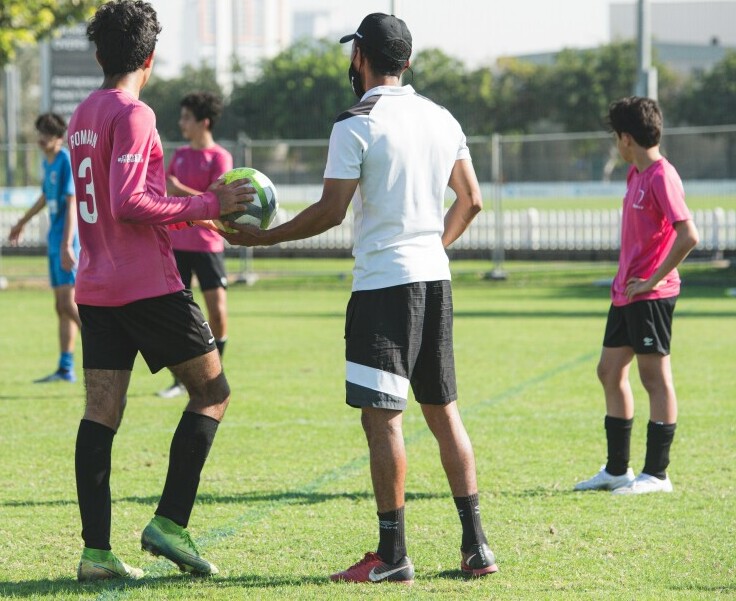
Coaching youth soccer is all about getting the basics right. It’s like setting the stage for future success. Knowing the rules and mechanics of the game is super important. Think of it as giving kids the map before they start their journey. It shapes how they play and understand the game.
Physical literacy might sound fancy, but it’s just about helping kids move well. It means running, jumping, and kicking with confidence. These skills don’t just appear overnight, but they form the backbone of any sport, soccer included. You see a kid dribble like a mini Messi, and that’s years of practice in the making. It’s about getting them comfortable with movement.
When it comes to age-appropriate techniques, it’s not a one-size-fits-all. Younger kids need fun, engaging exercises that feel like play. Older kids can dive into more complex stuff, like strategy and tactics. Tailoring techniques to the age group kee22ps them interested and challenged, without it feeling like school.
But hey, patience is your best friend here. Teaching young kids isn’t always a breeze. They’re learning something new, and mistakes will happen. It’s all part of the journey. You gotta be there to guide them, correct gently, and celebrate when they get it right. It’s about building confidence just as much as skills.
Creating an Inclusive and Motivational Environment
Creating a positive and supportive atmosphere in youth soccer makes all the difference. Kids thrive in environments where they feel welcomed and valued. As a coach, it’s about fostering a sense of belonging and teamwork. Everyone has a part to play, and every role is crucial.
Good communication skills are your number one tool here. It’s not just about giving instructions; it’s about listening and connecting with your players. When you talk to them, use clear language and make sure everyone’s on the same page. More importantly, ask for their input and encourage questions. This builds trust and openness, which are key for a cohesive team.
Handling varying skill levels is a normal part of the deal. Within any group, you’ll have kids at different stages in their soccer journey. The trick is to keep everyone challenged but not overwhelmed. Tailor your coaching to help each player improve at their pace, and always highlight their progress, no matter how small.
Engagement is all about understanding each kid’s goals and challenges. Spend a little time chatting and getting to know what they’re aiming for. Do they want to improve their shooting or maybe work better as a part of a team? Recognizing their personal goals helps you to fine-tune your coaching and make each session meaningful.
Designing Fun and Effective Training Sessions
Keeping training sessions lively and engaging is a game-changer when coaching young soccer players. Kids learn best when they’re having fun, so incorporating games and drills that feel like play can do wonders. Think of creative activities that keep them moving while learning new skills.
Balancing skill development with enjoyment is crucial. It’s about striking that sweet spot where they are improving but still loving every moment on the field. If a drill starts feeling too much like a chore, it might be good to switch it up. Stay flexible with your plans.
Tailoring sessions to focus on specific skills like dribbling, passing, or shooting helps players see their progress. It’s a rewarding experience for them to notice improvements in their game. Plus, mixing up the focus keeps sessions fresh and exciting.
Tracking progress doesn’t just help the players, but it also gives you valuable insights into your coaching effectiveness. Celebrate their achievements, no matter how small. Acknowledging effort boosts their confidence and motivation to keep striving.
Developing Beyond Soccer: Instilling Lifelong Values and Resilience
Youth soccer is more than just a game; it’s a chance to teach important life lessons. Being a coach is about shaping not just good players, but also good people. You’re guiding them on how to handle both wins and losses with grace.
Soccer offers a perfect platform to instill values like discipline and leadership. Encouraging kids to take on leadership roles helps them learn responsibility and decision-making. It’s more cheers, less lectures, and showing them by example.
Promoting a healthy lifestyle goes hand-in-hand with coaching. Regular exercise through soccer builds strong habits early on. Emphasizing the importance of fitness, nutrition, and rest can influence their choices off the field as well.
Encouraging mental toughness is part of this journey. Soccer teaches kids to bounce back from setbacks and keep moving. These experiences prepare them for challenges beyond the pitch. It’s about fostering a mindset that embraces both success and failure as part of learning.
Preparing young athletes for competitive play involves managing expectations. The focus should be on personal growth rather than just winning. This helps maintain a healthy perspective as they move through different levels of the sport.
